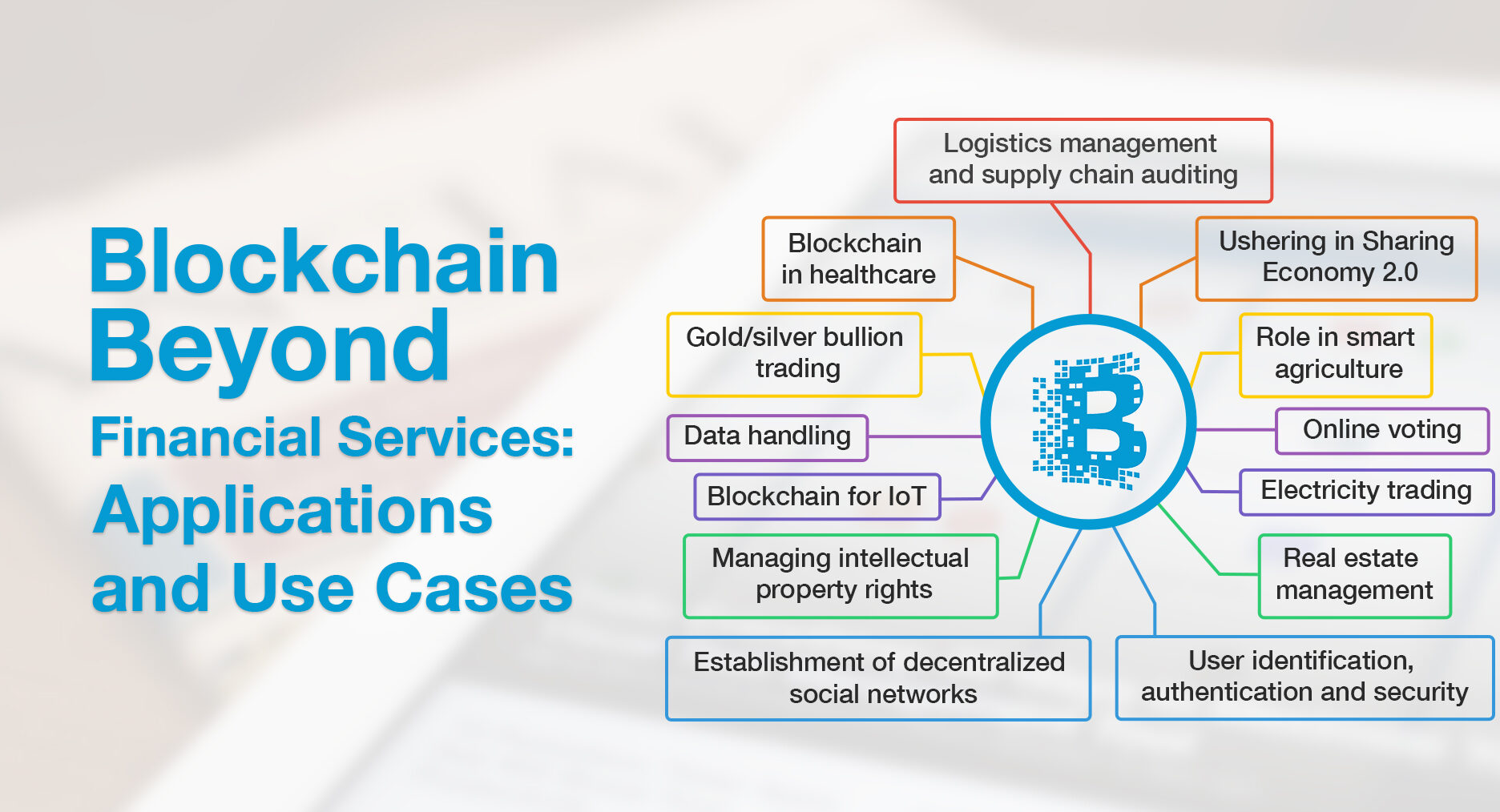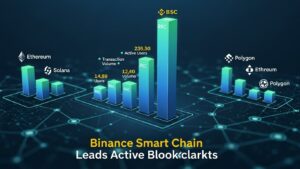Finding the right blockchain development company near me has become increasingly crucial as businesses across industries recognize the transformative potential of blockchain technology. Whether you’re a startup looking to launch an innovative DeFi platform or an established enterprise seeking to integrate blockchain solutions into your existing operations, partnering with a local blockchain development firm offers distinct advantages that remote alternatives simply cannot match. Local blockchain developers understand regional market dynamics, regulatory requirements, and business cultures that can significantly impact project success. When searching for a blockchain development company near me, you’re not just looking for technical expertise – you’re seeking a strategic partner who can provide hands-on support, face-to-face consultations, and immediate response times that are essential for complex blockchain implementations. The proximity factor becomes particularly valuable when dealing with sensitive enterprise data, regulatory compliance requirements, and the need for ongoing maintenance and support that characterizes successful blockchain projects.
Why Choose a Local Blockchain Development Company Near Me
Selecting a nearby blockchain development firm provides numerous strategic advantages that extend far beyond simple convenience. Local companies offer the unique benefit of in-person meetings, which are invaluable when discussing complex technical requirements, security protocols, and business integration strategies that form the backbone of successful blockchain projects.
Geographic proximity enables real-time collaboration during critical development phases, allowing for immediate problem-solving and iterative refinement that can significantly accelerate project timelines. Local developers also possess intimate knowledge of regional regulatory environments, industry standards, and compliance requirements that may impact your blockchain implementation. The cultural alignment between local businesses and development teams often results in better communication, shared understanding of market dynamics, and more effective project management. This cultural synergy can be particularly important when developing consumer-facing blockchain applications that need to resonate with local user preferences and behaviors.
Additionally, local blockchain development companies typically maintain stronger accountability standards and long-term client relationships, as their reputation within the community directly impacts their business success. This local accountability factor often translates into higher quality deliverables and more responsive customer service. Time zone alignment facilitates seamless communication and reduces project delays that commonly occur when working with offshore development teams. The ability to schedule meetings, resolve issues, and maintain project momentum during overlapping business hours can significantly improve project outcomes and reduce development costs.
Essential Services Offered by Leading Blockchain Development Companies
Custom Blockchain Application Development
Professional blockchain development companies specialize in creating tailored solutions that address specific business requirements and industry challenges. These custom applications range from simple token creation to complex enterprise-grade platforms that integrate with existing business systems. The development process typically begins with comprehensive requirements analysis, followed by architecture design, smart contract development, and frontend interface creation. Leading companies employ agile development methodologies to ensure continuous client feedback and iterative improvements throughout the project lifecycle.
Security considerations remain paramount in custom blockchain development, with reputable companies implementing multi-layered security protocols, comprehensive testing procedures, and ongoing vulnerability assessments to protect against potential threats and ensure system integrity. Integration capabilities with existing enterprise systems, databases, and third-party APIs are crucial components of custom blockchain applications. Professional development teams possess the expertise to seamlessly connect blockchain solutions with legacy systems while maintaining data integrity and operational continuity.
Smart Contract Development and Auditing
Smart contracts form the foundation of most blockchain applications, requiring specialized expertise in programming languages like Solidity, Rust, and Vyper. Professional development companies provide comprehensive smart contract services including design, development, testing, and deployment across various blockchain platforms. The smart contract development process involves meticulous code review, security analysis, and performance optimization to ensure contracts execute reliably and efficiently under various network conditions. Experienced developers understand the nuances of different blockchain protocols and can optimize contracts for specific platforms and use cases.
Security auditing represents a critical component of smart contract development, with professional firms conducting thorough code reviews, vulnerability assessments, and penetration testing to identify potential security risks before deployment. Gas optimization and cost-efficiency considerations are integral to professional smart contract development, as poorly optimized contracts can result in prohibitively expensive transaction costs that undermine project viability and user adoption.
Enterprise Blockchain Integration Solutions
Enterprise blockchain integration requires sophisticated understanding of existing business processes, data structures, and system architectures. Professional development companies specialize in creating seamless integration solutions that enhance operational efficiency without disrupting established workflows. The integration process typically involves comprehensive system analysis, data mapping, API development, and gradual implementation strategies that minimize business disruption while maximizing blockchain benefits. Enterprise solutions often require hybrid approaches that combine blockchain technology with traditional databases and applications.
Scalability considerations are paramount in enterprise implementations, as solutions must handle substantial transaction volumes, multiple user access points, and complex data processing requirements without compromising performance or security. Change management and staff training components are essential aspects of enterprise blockchain integration, with professional companies providing comprehensive training programs and ongoing support to ensure successful adoption and utilization of new blockchain systems.
Key Factors to Consider When Selecting Your Local Blockchain Development Partner

Technical Expertise and Platform Specialization
Evaluating the technical capabilities of potential blockchain development partners requires careful assessment of their expertise across different blockchain platforms, programming languages, and development frameworks. Leading companies typically specialize in multiple platforms including Ethereum, Hyperledger, Binance Smart Chain, Polygon, and other emerging networks. The depth of technical knowledge can be assessed through their portfolio of completed projects, client testimonials, and the technical qualifications of their development team. Look for companies with certified developers, contributions to open-source projects, and active participation in blockchain communities.
Platform-specific expertise becomes crucial when your project has specific requirements for transaction speed, cost efficiency, or particular blockchain features. Different platforms offer distinct advantages, and experienced developers can guide platform selection based on your specific use case and requirements. Emerging technology adoption and continuous learning demonstrate a company’s commitment to staying current with rapidly evolving blockchain technologies. Companies that actively explore new platforms, protocols, and development tools are better positioned to deliver cutting-edge solutions.
Portfolio and Industry Experience
A comprehensive portfolio review provides valuable insights into a company’s capabilities, experience, and track record across different industry verticals and project types. Examine completed projects for complexity, innovation, and successful deployment outcomes. Industry-specific experience can be particularly valuable when your project operates within regulated sectors like healthcare, finance, or government services. Companies with relevant industry experience understand compliance requirements, security standards, and operational constraints specific to your sector.
Client references and case studies offer firsthand insights into the company’s project management capabilities, communication effectiveness, and ability to deliver projects on time and within budget. Contact previous clients to discuss their experience and satisfaction with delivered solutions. The scale and complexity of previous projects provide indicators of the company’s capability to handle your specific requirements. Companies with experience in large-scale enterprise implementations demonstrate the technical and organizational capabilities necessary for complex blockchain projects.
Security and Compliance Standards
Security protocols and compliance frameworks are fundamental considerations when selecting a blockchain development partner, particularly for projects handling sensitive data or operating in regulated industries. Reputable companies implement comprehensive security measures throughout the development lifecycle. Industry certifications and compliance standards such as ISO 27001, SOC 2, and GDPR compliance demonstrate a company’s commitment to maintaining high security and privacy standards. These certifications provide assurance that your project will be developed according to industry best practices.
Security audit procedures and vulnerability testing protocols should be integral components of the development process. Companies that employ third-party security audits and maintain ongoing security monitoring demonstrate commitment to delivering secure blockchain solutions. Data protection and privacy measures become particularly important when blockchain applications handle personal information or sensitive business data. Ensure your development partner understands relevant privacy regulations and implements appropriate data protection measures.
Cost Considerations and Pricing Models for Blockchain Development Services
Understanding Development Cost Factors
Blockchain development costs vary significantly based on project complexity, platform selection, feature requirements, and timeline constraints. Simple token creation projects may cost a few thousand dollars, while complex enterprise applications can require investments of hundreds of thousands of dollars. The scope of work directly impacts pricing, with factors including smart contract complexity, user interface design requirements, third-party integrations, and security audit needs all contributing to overall project costs. Detailed project scoping helps establish accurate cost estimates and prevents budget overruns.
Platform selection influences development costs, as different blockchain networks have varying development complexities, security requirements, and deployment costs. Ethereum-based projects typically require higher gas fees, while newer platforms may offer cost advantages but require specialized expertise. Timeline requirements can significantly impact pricing, as accelerated development schedules often require additional resources and may incur premium pricing. Realistic timeline planning helps optimize development costs while ensuring quality deliverables.
Pricing Models and Payment Structures
Fixed-price contracts provide cost predictability but require detailed project specifications and clear scope definition. This pricing model works well for projects with well-defined requirements and minimal expected changes during development. Time and materials pricing offers flexibility for projects with evolving requirements but requires careful project management to control costs. This model allows for iterative development and ongoing refinement but requires trust and clear communication between client and development team.
Hybrid pricing models combine fixed-price components for well-defined elements with time and materials pricing for variable or uncertain aspects. This approach balances cost predictability with development flexibility. Milestone-based payment structures align payment schedules with project deliverables, providing protection for both clients and development companies. This approach ensures continuous progress and allows for course corrections throughout the development process.
Local Market Analysis: Finding Blockchain Developers in Your Area
Regional Blockchain Development Landscape
The blockchain development industry has experienced significant geographic expansion, with major development centers emerging in cities across North America, Europe, and Asia. Each region offers distinct advantages in terms of talent availability, cost structures, and regulatory environments. Major metropolitan areas typically host the highest concentration of blockchain development companies, offering extensive talent pools, established business networks, and proximity to venture capital and investment communities. Cities like San Francisco, New York, London, Berlin, and Singapore have become recognized blockchain development hubs.
Emerging markets and secondary cities are increasingly developing strong blockchain development capabilities, often offering cost advantages while maintaining high technical standards. These regions may provide excellent value propositions for companies seeking local development partners. Government initiatives and regulatory frameworks vary significantly by region, influencing the availability and capabilities of local blockchain development companies. Regions with supportive regulatory environments often attract more development talent and investment.
Evaluating Local Talent and Resources
The local talent pool assessment involves evaluating the availability of experienced blockchain developers, project managers, and technical specialists in your geographic area. University programs, coding bootcamps, and professional development initiatives contribute to local talent development. Community involvement and industry participation provide indicators of a company’s commitment to the local blockchain ecosystem. Companies that actively participate in meetups, conferences, and educational initiatives demonstrate community engagement and thought leadership.
Partnership networks and strategic alliances with other technology companies, consulting firms, and industry organizations can enhance a development company’s capabilities and provide additional resources for complex projects. Local business ecosystem connections, including relationships with legal firms, regulatory consultants, and financial institutions, can provide valuable support for blockchain projects requiring comprehensive business integration.
The Development Process: What to Expect When Working Locally
Project Discovery and Requirements Analysis
The initial project discovery phase involves comprehensive requirements gathering, stakeholder interviews, and technical feasibility analysis. Local development companies can conduct in-person workshops and collaborative sessions that facilitate thorough requirements documentation and shared understanding. Business analysis and process mapping help identify optimal blockchain integration points and potential areas for operational improvement. Local teams can observe existing business processes firsthand and provide insights based on direct observation and stakeholder interaction.
Technical architecture planning includes platform selection, security framework design, and integration strategy development. Local teams can better understand existing technical infrastructure and provide recommendations based on direct system assessment. Timeline and resource planning benefit from local collaboration, as development teams can better estimate effort requirements and identify potential challenges based on direct project assessment and stakeholder communication.
Design and Development Phases
User experience design and interface development require close collaboration between design teams and end users. Local development companies can conduct user testing sessions, gather feedback, and iterate on designs more effectively than remote teams. Agile development methodologies facilitate continuous collaboration and iterative improvement throughout the development process. Regular sprint reviews, stakeholder demos, and feedback sessions are more effective when conducted in person with local teams.
Quality assurance and testing procedures benefit from local collaboration, particularly for user acceptance testing and integration testing with existing systems. Local teams can conduct on-site testing and provide immediate support for issue resolution. Code reviews and security assessments are enhanced through collaborative sessions where development teams can explain technical decisions and address questions in real-time. Local teams can provide comprehensive documentation and knowledge transfer more effectively.
Deployment and Ongoing Support
Production deployment requires careful planning and coordination, particularly for enterprise applications that must integrate with existing systems. Local teams can provide on-site support during deployment phases and address issues immediately. User training and change management are crucial components of successful blockchain implementations. Local development companies can provide in-person training sessions and ongoing support that facilitate user adoption and system utilization.
Maintenance and support services are significantly enhanced through local partnerships, as development teams can provide immediate response to issues and implement updates or modifications quickly. Performance monitoring and optimization require ongoing attention and periodic system assessments. Local teams can conduct regular system reviews and provide recommendations for improvements based on actual usage patterns and performance data.
Industry-Specific Blockchain Applications and Use Cases

Financial Services and Fintech Solutions
Financial institutions increasingly leverage blockchain technology for payment processing, trade finance, identity verification, and regulatory compliance applications. Local development companies with financial services expertise understand regulatory requirements and security standards specific to the financial sector. Payment processing applications include cross-border remittances, micro-transactions, and programmable payments that reduce costs and improve transaction speed. These applications require deep understanding of financial regulations and integration with existing banking infrastructure.
Trade finance applications streamline letter of credit processing, supply chain financing, and trade documentation through blockchain-based transparency and automation. These solutions require collaboration with multiple stakeholders and understanding of international trade regulations. Regulatory compliance applications help financial institutions meet reporting requirements, conduct due diligence, and maintain audit trails through immutable blockchain records. These applications require careful attention to data privacy and regulatory requirements.
Supply Chain and Logistics Management
Supply chain transparency and traceability applications enable companies to track products from origin to consumer, verify authenticity, and ensure compliance with quality and safety standards. These applications require integration with existing logistics systems and IoT devices. Inventory management and asset tracking solutions provide real-time visibility into product location, condition, and ownership throughout the supply chain. These applications often require complex integration with warehouse management systems and transportation networks.
Sustainability and ethical sourcing applications help companies demonstrate compliance with environmental and social responsibility standards through transparent and verifiable supply chain data. Quality assurance and recall management applications enable rapid identification and response to product quality issues through comprehensive tracking and documentation capabilities.
Emerging Technologies and Future Trends in Blockchain Development
Integration with Artificial Intelligence and IoT
The convergence of blockchain technology with artificial intelligence and Internet of Things devices creates new opportunities for automated decision-making, data integrity, and decentralized computing applications. AI-powered smart contracts can execute complex business logic based on real-world data inputs and machine learning algorithms, enabling sophisticated automation scenarios that adapt to changing conditions.
IoT device integration enables blockchain applications to interact with physical world data through sensors, monitors, and control systems. These applications require careful consideration of security, privacy, and scalability challenges. Edge computing integration allows blockchain applications to process data and execute transactions closer to end users, improving performance and reducing latency for real-time applications.
Sustainability and Green Blockchain Solutions
Environmental sustainability has become a crucial consideration in blockchain development, with increasing focus on energy-efficient consensus mechanisms and carbon-neutral blockchain operations. Proof-of-stake and other energy-efficient consensus mechanisms provide alternatives to energy-intensive proof-of-work systems while maintaining security and decentralization benefits.
Carbon offset and renewable energy integration initiatives help blockchain applications minimize environmental impact and demonstrate commitment to sustainability. Green blockchain development practices include optimization of smart contract code for gas efficiency, selection of environmentally friendly blockchain platforms, and implementation of sustainable development practices.
Conclusion
Selecting the right blockchain development company near me represents a critical decision that can significantly impact your project’s success, timeline, and long-term viability. The advantages of working with local blockchain developers extend far beyond simple convenience, encompassing enhanced communication, cultural alignment, immediate support availability, and deep understanding of regional business dynamics and regulatory requirements.
The blockchain development landscape continues evolving rapidly, with new platforms, technologies, and applications emerging regularly. Local development partners who stay current with these trends while maintaining strong client relationships provide the ideal combination of technical expertise and business partnership that characterizes successful blockchain implementations.
As you evaluate potential development partners, focus on companies that demonstrate not only technical competence but also strong communication skills, transparent business practices, and commitment to long-term client success. The investment in finding the right local partner will pay dividends throughout your project lifecycle and beyond.
Ready to transform your business with blockchain technology? Contact a qualified blockchain development company near me today to discuss your project requirements and discover how local expertise can accelerate your blockchain journey. Schedule a consultation to explore how the right development partner can turn your blockchain vision into reality while providing the personalized service and accountability that only local partnerships can deliver.




